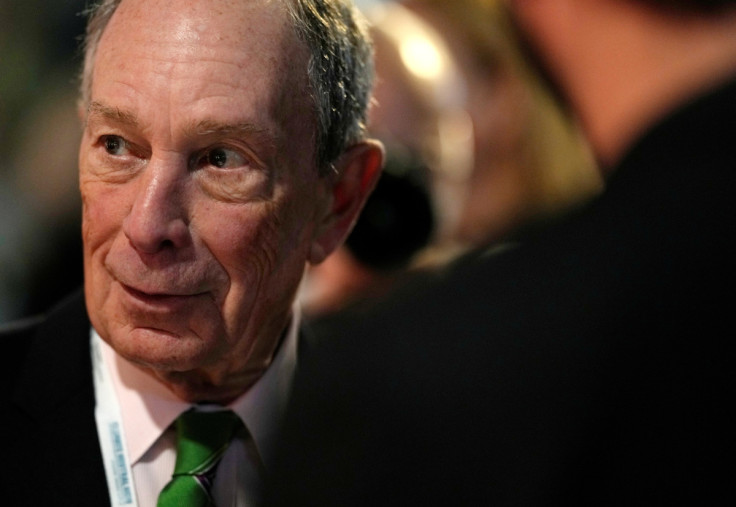Media Mogul Bloomberg Eyes Wall Street Journal Or Washington Post Acquisition

Michael Bloomberg has expressed the desire to own a big-name newspaper but so far has not reached out to Rupert Murdoch to discuss a possible acquisition of Dow Jones and its flagship publication the Wall Street Journal, sources familiar with the matter told Reuters.
News website Axios reported earlier on Friday the billionaire owner of Bloomberg L.P. was interested in acquiring either WSJ parent Dow Jones from Murdoch's News Corp, or the Washington Post from Amazon.com's Jeff Bezos, citing a source familiar with Bloomberg's thinking.
Sources told Reuters no approach has been made, and a spokesperson for the Washington Post said it is not for sale.
Any acquisition would give the 80-year-old billionaire a trophy media property to publicize his political agenda such as addressing climate change, sources told Reuters.
Such a merger would create a financial data and news giant, strengthening the world's 12th-richest man's grip on the industry while drawing scrutiny from antitrust regulators.
According to the Axios report, Bloomberg sees Dow Jones, also the publisher of Barron's and MarketWatch, as the ideal fit but would buy the Post if Amazon.com founder Bezos was interested in selling.
Bloomberg L.P. and Dow Jones did not immediately respond to Reuters' requests for comment. Michael Bloomberg and Bezos did not immediately respond to requests for comment, and a spokesman for Rupert Murdoch declined to comment.
There has been no outreach from Bloomberg and there are no active talks with the Murdochs as of now, a source familiar with the matter told Reuters, adding that it is unclear if Murdoch would be open to considering an offer.
Antitrust experts agreed that the merger of Bloomberg and Dow Jones' business news divisions would drive significant scrutiny from U.S. regulators, especially as the Biden administration has taken a more muscular approach to enforcing antitrust laws.
COMPETITORS IN BUSINESS NEWS
The companies might be forced to divest business holdings to appease officials concerned about ensuring competition in the business news market, some experts said.
"They will be interested in the alternative choices available to users of financial information services and business journalism ... as well as the impact, if any, on the labor market for financial journalists," said antitrust lawyer Jonathan Rubin.
The Federal Trade Commission, Department of Justice and Federal Communications Commission declined to comment.
Shares of News Corp were up about 2% on Friday, outpacing modest gains in the broader market.
In October, Rupert Murdoch had started a process that could reunite his media empire, News Corp and Fox Corp, nearly a decade after the companies split.
The proposal has, however, met with stern opposition from several shareholders who say a combination would not realize the full value of News Corp.
Activist investor Irenic Capital Management, which holds about 2% of News Corp's Class B voting shares, wrote a November letter to Murdoch and the News Corp board that Dow Jones would be highly valued as a separately-traded company.
"The WSJ is a trophy property to the Murdoch family," said Craig Huber, media analyst at Huber Research Partners, adding that the speculation is likely a result of his plan to reunite his media empire.
"That's not happening," said media analyst Claire Enders, of Britain's Enders Analysis. "The WSJ is the core asset of News Corp."
Reuters competes with Bloomberg News, a unit of Bloomberg L.P., as a provider of financial news.
© Copyright Thomson Reuters 2024. All rights reserved.











